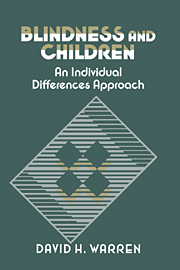Book contents
- Frontmatter
- Contents
- Preface
- Introduction
- Part I Interaction with the physical world
- Part II The acquisition of cognitive skills
- Part III Adapting to the social world
- 8 Social–emotional and communicative development in infancy
- 9 Language as a social skill
- 10 Social development and adjustment
- 11 Developing a sense of self
- Part IV Summary
- Conclusion
- References
- Author index
- Subject index
9 - Language as a social skill
from Part III - Adapting to the social world
Published online by Cambridge University Press: 02 December 2009
- Frontmatter
- Contents
- Preface
- Introduction
- Part I Interaction with the physical world
- Part II The acquisition of cognitive skills
- Part III Adapting to the social world
- 8 Social–emotional and communicative development in infancy
- 9 Language as a social skill
- 10 Social development and adjustment
- 11 Developing a sense of self
- Part IV Summary
- Conclusion
- References
- Author index
- Subject index
Summary
In Chapter 5 we considered the development of language in relation to the child's emerging cognitive capabilities. In the present chapter, we turn to the developing role of language as a means of social communication.
The bridge from preverbal to verbal communication
Although spoken language may be defined as beginning with the utterance of the first word that carries meaning for the infant, this is an arbitrary milestone. In fact, there is a good deal of continuity from prelanguage communication to language proper, particularly in what we may call the communicative channel. Before the onset of spoken language, parent–infant communication takes place via a variety of activities we have already discussed, including eye contact, smiling, touching, and nonverbal sound. Later, communication may still occur via these nonverbal channels, at the same time that language proper emerges as another channel through which parent–infant communication can take place. In suggesting a framework for the development of early language in multi-handicapped children, Rogow (1980) emphasized the importance of the establishment of a prelanguage “signal system”: this is no less important for blind infants.
Wills (1979) noted that in the period of prelanguage vocalization infants “vocalize to get an unspecific response from the mother – the mother vocalizes back, touches a cheek, and so on” (p. 87). But language must become capable of eliciting specific responses from parents and others. Wills noted that this transition is difficult for some blind infants: she suggested that they are slow to understand that “they could use their mothers as agents” (p. 86).
- Type
- Chapter
- Information
- Blindness and ChildrenAn Individual Differences Approach, pp. 225 - 246Publisher: Cambridge University PressPrint publication year: 1994



